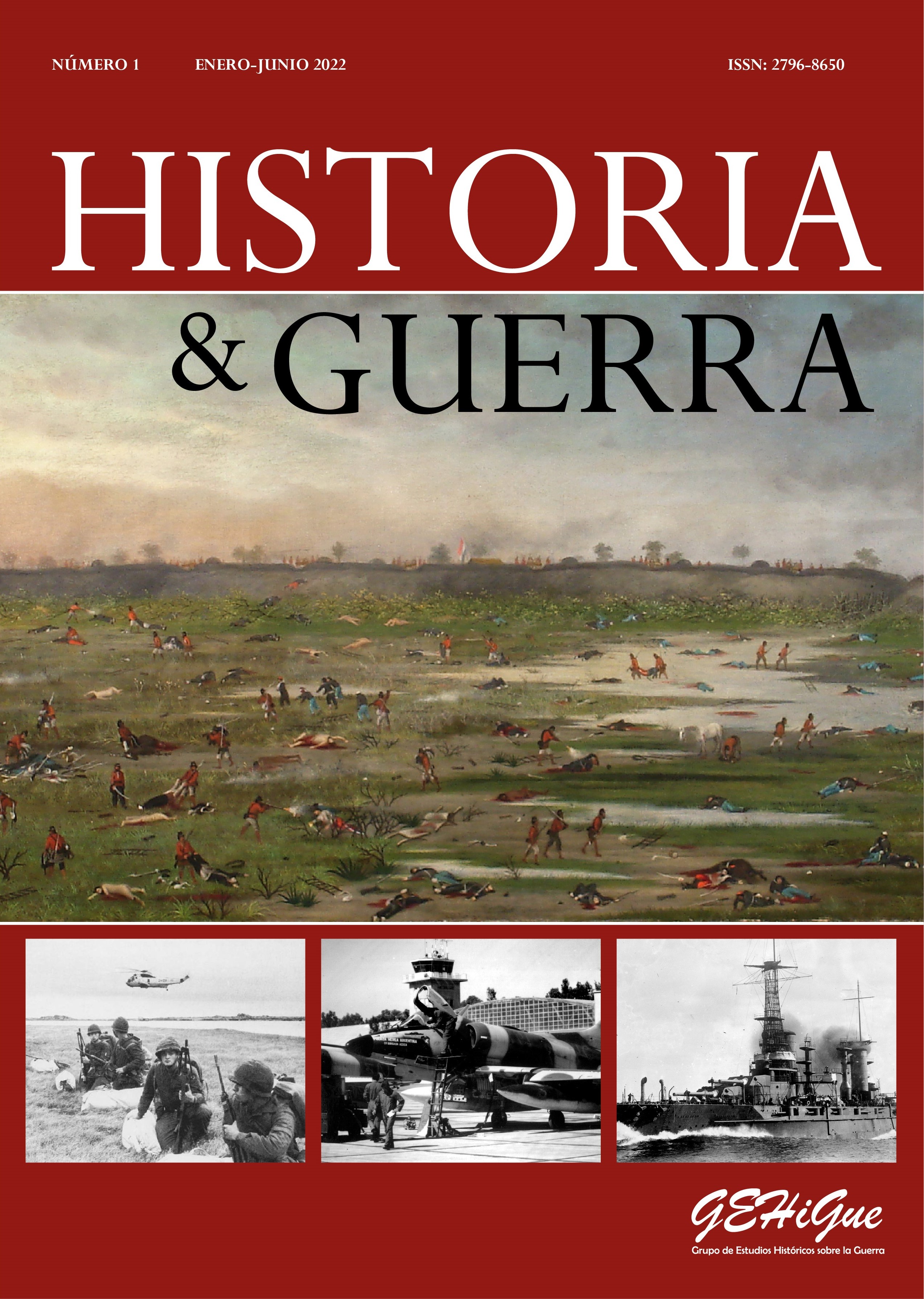Hablando con soldados: conciencia histórica y memoria colectiva de la Gran Guerra entre soldados en servicio y retirados de un regimiento de infantería escocés
Resumen
En el verano de 2017, se llevaron a cabo una serie de cincuenta y dos entrevistas confidenciales con veteranos retirados y soldados en servicio del Black Watch, un regimiento de infantería escocés. Se buscaba establecer si existía una memoria colectiva central claramente identificable de la Gran Guerra dentro de esta comunidad de regimiento en ese momento. Luego de una breve explicación de la elección de soldados en servicio y retirados como entrevistados, se ofrece una descripción de las definiciones básicas de conciencia histórica y memoria colectiva. Posteriormente, se incluye una descripción de las entrevistas y los entrevistados. Entre los temas tratados en las entrevistas se encuentran las visitas a los campos de batalla de la Gran Guerra, la tradición oral escocesa, la participación familiar en el conflicto, la poesía y el cine de guerra, las diferencias intergeneracionales en la percepción de la guerra y la conmemoración formal. Este artículo recurre a los resultados de las entrevistas para examinar las percepciones de los entrevistados sobre el conflicto y describir la formación de la conciencia histórica de la guerra dentro del grupo. Finalmente, concluye con un intento de identificación del núcleo de la memoria colectiva de la guerra dentro de este grupo del regimiento en ese momento.Descargas
Citas
CLARK, A. “Inheriting the past: Exploring historical consciousness across the generations”. Historical Encounters: A journal of historical consciousness, historical cultures, and history education, vol. 1, nº 1 (2014).
GILLIS, J. R. “Memory and Identity: The History of a Relationship”. In Commemorations: The Politics of National Identity. Ed. by John R. Gillis. Princeton: Princeton University Press, 1994.
HALBWACHS, M. Les Cadres sociaux de la mémoire. Paris: Albin Michel, 1994.
HEATHORN, S. “The Mnemonic Turn in the Cultural Historiography of Britain’s Great War”. The Historical Journal, vol. 48, nº 4 (2005).
KANSTEINER, W. “Finding Meaning in Memory: A Methodological Critique of Collective Memory Studies”. History and Theory, vol. 41, nº 2 (2002).
KENDALL, T. Poetry of the First World War: An Anthology. Oxford: Oxford University Press, 2013.
McCLUSKEY, Tm. Black Watch Corner. Forfar: Twa Tams Publishing, 2016.
NEWBOLT, Sir H. J. Poems: New and Old (English Poetry Second Edition). London: John Murray, 1921.
NORA, P. “Between Memory and History”. Representations, nº 26 (1989).
RÜSEN, J. “Tradition: A principle of sense-generation and its logic and effect in cultural history”. History and Theory, vol. 51, nº 4 (2012).
STALLWORTHY, J. H. The Oxford Book of War Poetry. Oxford: Oxford University Press, 1984.
Derechos de autor 2021 Norman Fraser Brown

Esta obra está bajo licencia internacional Creative Commons Reconocimiento-NoComercial 4.0.

Historia & Guerra utiliza una licencia internacional Atribución-NoComercial 4.0 Internacional (CC BY-NC 4.0).
Usted es libre de:
- Compartir — copiar y redistribuir el material en cualquier medio o formato.
- Adaptar — remezclar, transformar y construir a partir del material.
- La licenciante no puede revocar estas libertades en tanto usted siga los términos de la licencia.
Bajo los siguientes términos:
Atribución — Usted debe dar crédito de manera adecuada, brindar un enlace a la licencia, e indicar si se han realizado cambios. Puede hacerlo en cualquier forma razonable, pero no de forma tal que sugiera que usted o su uso tienen el apoyo de la licenciante.
NoComercial — Usted no puede hacer uso del material con propósitos comerciales.
No hay restricciones adicionales — No puede aplicar términos legales ni medidas tecnológicas que restrinjan legalmente a otras a hacer cualquier uso permitido por la licencia.
Avisos:
No tiene que cumplir con la licencia para elementos del materiale en el dominio público o cuando su uso esté permitido por una excepción o limitación aplicable.
No se dan garantías. La licencia podría no darle todos los permisos que necesita para el uso que tenga previsto. Por ejemplo, otros derechos como publicidad, privacidad, o derechos morales pueden limitar la forma en que utilice el material.
El autor conserva todos los derechos de su obra sin restricciones y garantiza a Historia & Guerra el derecho de ser la primera publicación del trabajo. Asimismo, el autor podrá establecer acuerdos adicionales para la distribución no exclusiva de la versión de la obra publicada en la Revista (por ejemplo, situarlo en un repositorio institucional o publicarlo en un libro), con el reconocimiento de haber sido publicado primero en esta revista. No se permite utilizar la obra con fines comerciales.














.jpg)















